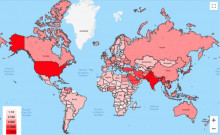You might want uninstall Houseparty, expert calls it a privacy ‘trojan horse’
The group video chat app Houseparty has spiked in popularity after millions of people around the world began practicing social isolation amid the COVID-19 pandemic. Houseparty touts a slew of unique, easy-to-use features that make group video calls more fun, but it also comes with a plethora of privacy concerns.












































































